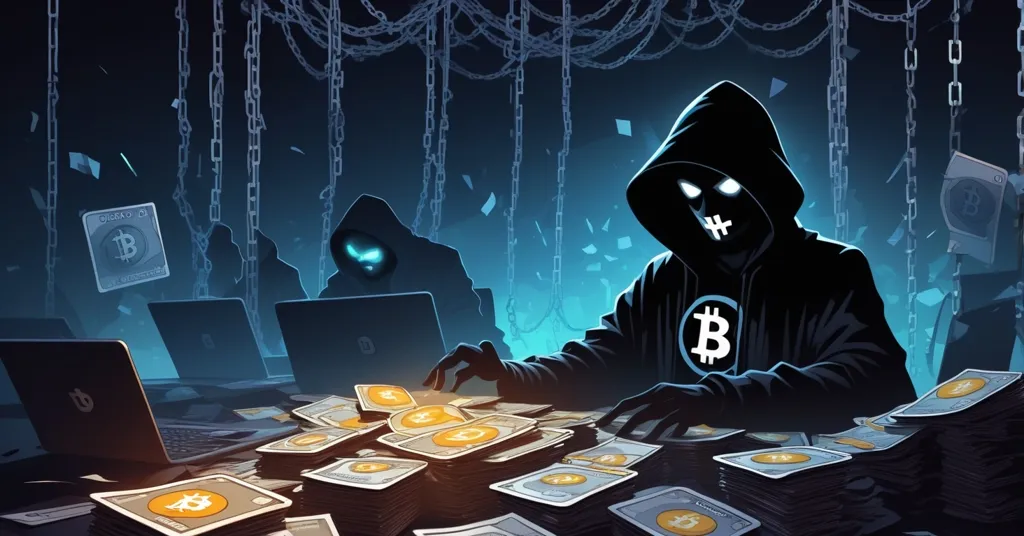Discord Hack: 2.1M User IDs Stolen in Massive Extortion Plot

Hackers Threaten to Leak 2.1 Million Discord Users’ Passports and Licenses in Brutal Extortion Scheme
On September 20, a massive cyberattack struck at the heart of Discord, one of the internet’s most popular communication platforms. Hackers infiltrated its third-party customer support system, Zendesk, and made off with over 2.1 million government-issued ID images—think passports and driver’s licenses—submitted by users for age verification. Now, these digital thugs are holding the data hostage, demanding an undisclosed ransom to keep this personal information from flooding the dark web.
- Colossal Data Theft: Over 2.1 million ID images stolen, equaling 1.5 terabytes of sensitive data.
- Extortion Play: Hackers threaten to release the data unless Discord pays up.
- Privacy Nightmare: Incident ignites fury over data handling and amplifies digital ID concerns.
The sheer magnitude of this breach is jaw-dropping. According to cybersecurity research group VX-Underground, the attackers snatched 2,185,151 identification images, amounting to a whopping 1.5 terabytes of data. These aren’t casual profile pics; they’re the kind of documents that, in the wrong hands, can unleash a torrent of identity theft, phishing scams, and manipulative social engineering ploys. Imagine someone using your passport scan to open fraudulent accounts or worse. The hackers are playing hardball, threatening to dump everything online unless Discord meets their ransom demands, the specifics of which remain shrouded in mystery. This isn’t a petty hack—it’s a full-blown digital heist with millions of lives hanging in the balance.
Discord responded on October 3 with a blog update, attempting to contain the fallout. They acknowledged unauthorized access to their Zendesk instance, which handles customer support and trust-and-safety inquiries, but were quick to stress that their core servers weren’t breached. No passwords, private messages, or complete credit card details were exposed, they insist, and only a “limited number of users” are affected. But here’s where things get dicey: VX-Underground’s claim of over 2.1 million compromised IDs starkly contradicts Discord’s “limited” scope. Are we looking at a PR spin to downplay the damage, or does VX-Underground have access to unverified data? The gap in reporting is glaring, and it erodes trust faster than a shady ICO promising 100x returns. Until more clarity emerges, users are left guessing just how deep this rabbit hole goes.
User Fury and Broken Promises
The user backlash has been nothing short of ferocious, and frankly, it’s justified. Discord had previously assured its community that age verification data—those sensitive ID uploads—would be deleted once the appeal process concluded. So how come this goldmine of personal info was still lingering on a third-party server, practically begging to be stolen? This isn’t a minor oversight; it’s a gut punch to user trust. When you submit a passport scan to prove you’re not a kid trying to sneak into an NSFW channel, the last thing you expect is for it to become leverage in a cybercriminal’s extortion racket. Social media is ablaze with users ripping into Discord’s data retention practices, demanding answers on why such explosive material wasn’t obliterated as promised or, at minimum, guarded like Fort Knox.
This fiasco isn’t happening in a vacuum. It’s a glaring example of a systemic rot in how digital platforms manage personal data. Giants like Discord, with hundreds of millions of users, often outsource critical functions to vendors like Zendesk for efficiency. But here’s the rub: these third-party systems frequently lack the robust security of in-house servers, making them low-hanging fruit for savvy hackers. Why go after Discord’s fortress when you can exploit a weaker backdoor? No financial data was taken this time, according to Discord, but that’s a hollow reassurance when your very identity could be auctioned off for pocket change in Bitcoin on some underground forum. This breach echoes past disasters like the 2017 Equifax hack, where 147 million people’s data was exposed. While Discord’s 2.1 million is smaller, the potential for real-world harm—fake loans, impersonation, you name it—is just as devastating.
Broader Fallout and Digital ID Debates
The shockwaves from this incident stretch far beyond Discord’s user base of gamers and content creators. In the United Kingdom, the timing of this breach couldn’t be more explosive. The UK government has been floating a national Digital ID program, a centralized system aimed at simplifying online identity checks. Critics have long argued that such a setup is a catastrophe in the making—an all-in-one target for hackers. This Discord debacle has supercharged that opposition, with a petition against the Digital ID plan amassing over 2.8 million signatures. The reasoning is brutally simple: if a private company can’t protect ID data, why should anyone trust a government to do better, especially on a national scale? It’s a debate worth having, and this breach has turned the volume up to eleven.
Stepping back, centralized data storage—whether by corporations or governments—is proving to be a liability we can’t afford. Every time a breach like this happens, it chips away at public faith in digital systems. And while Discord scrambles to mitigate the damage (details on their next steps remain frustratingly vague beyond the initial blog post), law enforcement in the United States and Europe is reportedly investigating. Don’t expect a quick resolution, though—cybercrime probes often crawl at a snail’s pace, slower than Bitcoin transactions during a mempool backlog. For now, users are left in limbo, wondering if their ID will surface in a dark web data dump.
Blockchain’s Answer to Centralized Failures
Here’s where we get to the good stuff, the kind of innovation that gets us fired up about the future. With trust in platforms like Discord at rock bottom, many are asking: can we verify identity without risking these data disasters? Blockchain technology offers a resounding yes. Take Privado ID, a spin-off from Polygon Labs, which has built a privacy-first web wallet using zero-knowledge proofs. For the uninitiated, zero-knowledge proofs (or ZK proofs) are a cryptographic trick that lets you prove something—like being over 18—without revealing the underlying details. Think of it as showing a bouncer a locked box with your ID inside; they know you’re legit without ever seeing the document. It’s brilliant, and it means platforms can confirm eligibility without storing sensitive data that hackers can steal.
Blockchain, the tech that powers Bitcoin, is fundamentally a tamper-proof digital ledger that doesn’t rely on a single point of failure. Unlike traditional setups where your info sits in a vulnerable database (looking at you, Zendesk), ZK-based systems keep data on your device or don’t share it at all. Privado ID isn’t just a cool concept; it’s a working solution that could have prevented a mess like Discord’s. As a Bitcoin maximalist, I’ll always argue that BTC is the ultimate expression of decentralization—money without middlemen, full stop. But I’ve got to tip my hat to altcoin ecosystems like Polygon for tackling privacy and scalability in ways Bitcoin doesn’t directly address. Their work on decentralized identity is a win for the broader mission of user empowerment and sticking it to centralized overreach.
That said, let’s keep our feet on the ground. Blockchain isn’t a magic fix. Rolling out decentralized identity systems at scale faces real obstacles: getting everyday users to adopt new tools, navigating regulatory minefields, and integrating complex tech into platforms built on legacy systems. Discord isn’t going to pivot to ZK proofs tomorrow, no matter how much we wish they would. And we can’t ignore the flip side of decentralization—its pseudonymity can empower the same scumbags pulling off these extortion schemes. Bitcoin is often the currency of choice for ransom payments, a double-edged sword that highlights both its strength and its potential for misuse. We’ve got to champion the tech while staying brutally honest about its challenges.
The Scum Behind the Scheme
Let’s not mince words: the hackers orchestrating this extortion are the lowest of the low. There’s no noble “hacktivist” spin here—they’re predators exploiting innocent users, many of whom are teens just trying to join a server with friends. If Discord pays the ransom, it opens the floodgates for more attacks; if they don’t, millions could suffer real harm. It’s a no-win scenario, and the lack of public details on the ransom amount or deadline only adds to the unease. Historically, these demands often range from thousands to millions in Bitcoin, favored for its hard-to-trace nature. Whether Discord negotiates or stands firm, the precedent this sets in the cybercrime world is chilling.
For users caught in the crossfire, the situation is maddening. Discord hasn’t announced specific remedies like credit monitoring or direct user notifications—at least not yet—and that silence is deafening. So, what can you do if you’re one of the potentially 2.1 million affected? First, check sites like HaveIBeenPwned.com to see if your data’s been leaked. Consider freezing your credit to block fraudulent accounts, and be hyper-vigilant for phishing attempts—those fake emails or calls trying to trick you into spilling more info. If you’re fed up, look into privacy-focused chat alternatives that don’t demand ID uploads. It’s not a perfect shield, but it’s a start.
Where Do We Stand?
This breach is a blaring alarm for any platform handling personal data. Centralized storage is a house of cards, and third-party vendors are often the joker in the deck. Bitcoin’s core philosophy of self-sovereignty—control your money, control your destiny—should inspire how we handle identity in the digital age. Blockchain offers a blueprint for a world where privacy isn’t just a buzzword, but a built-in feature. The question is whether platforms, users, and regulators will embrace it before the next 2.1 million IDs are on the chopping block. Until that shift happens, guard your data like it’s your private key, because in this game, no one else will.
Key Takeaways and Burning Questions
- What was stolen in the Discord data breach?
Hackers took over 2.1 million government-issued ID images, including passports and driver’s licenses, totaling 1.5 terabytes of data from Discord’s third-party Zendesk platform used for age verification. - How many users are truly at risk?
Discord says only a limited number are affected, but VX-Underground claims over 2.1 million ID photos are compromised, leaving a huge question mark over the real scope. - Why are users so livid with Discord?
Users are enraged because Discord pledged to delete age verification data after processing, yet the breach reveals it was kept on vulnerable third-party servers, ripe for theft. - What does this mean for digital privacy at large?
It exposes the dangers of centralized data storage and third-party vendor weaknesses, while amplifying debates like the UK’s resistance to a national Digital ID program, backed by 2.8 million petition signatures. - How can blockchain prevent future breaches?
Solutions like Privado ID from Polygon Labs use zero-knowledge proofs to verify identity without storing sensitive data, offering a secure, decentralized alternative to flawed traditional systems. - Should platforms switch to decentralized identity now?
Yes, centralized systems are proven disasters waiting to happen; blockchain-based methods could slash risks and boost user control, though scaling and adoption hurdles loom large. - What can users do to protect themselves post-breach?
Check for leaks on sites like HaveIBeenPwned.com, freeze credit to prevent fraud, stay alert for phishing scams, and consider privacy-first chat options over platforms like Discord.



